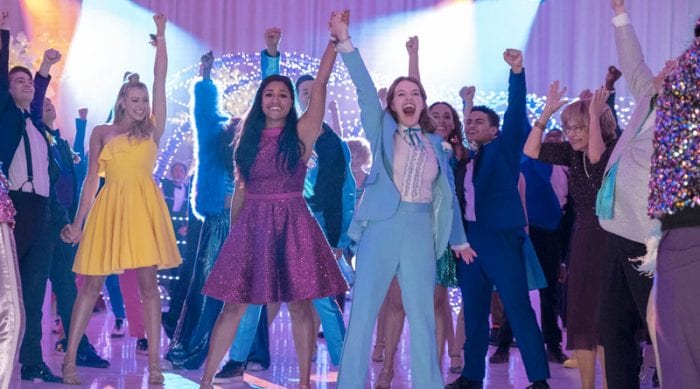Reviewed by Jeffrey Sanzel
One of the most fascinating public figures of recent years is Greta Thunberg, the Swedish environmental activist. At the age of fifteen, Thunberg began a solo protest of climate change by sitting outside of Swedish Parliament. Beginning in August of 2018, she spent the days she should be in school with a sign reading “School strike for climate.”
Thunberg’s quest to bring attention to climate change has sparked a worldwide movement, bringing both support and harsh criticism to her and her cause. The documentary I Am Greta tells this story. Director Nathan Grossman followed Thunberg from her early protests in 2018 to her testimony at the U.S. House Select Committee on the Climate Crisis the following year. Whether Grossman was prescient or just lucky is hard to judge.
The film chronicles Thunberg’s rise in fame: from people on Stockholm streets questioning why she wasn’t in school to meeting European heads of state. Furthermore, it touches on how she became a target of derision from deniers across the globe. At the heart of Thunberg’s message is her belief that the adults of the world have failed to stop what is the most dangerous and most immediate threat to the future. She calls out this failure to act: “Adults always say one thing and then do something completely different.” She has no hesitation in citing hypocrisy
Presented early in the film is Thunberg’s Asperger’s, a syndrome that places her on the autism spectrum. She has not seen this as restrictive. “Sometimes, it seems that we who have Asperger’s —autism — are the only ones who see through the noise.” She believes that this condition has allowed her the ability to give climate change her complete focus. When asked by a reporter if she suffers from Asperger’s Syndrome, she replies, “I wouldn’t say I suffer from … but I have it.” Further, she states: “I don’t see the world in black and white. It’s just the climate issue I see in black and white. “Sometimes I feel that it might be good if everyone had a tiny bit of Asperger’s … at least when it comes to climate.”
Thunberg’s obsession with what she considers “the defining issue of our time” began when she was eight years old. The showing of a film in school on the topic sent her into a deep depression. She stopped eating and suffered from selective mutism. Until that point, her family led a “high consuming” life, as demonstrated in a handful of home movie clips. Thunberg explains her insistence that her family converted to lives that were simpler and environmentally friendly: no flying, using an electric car, giving up meat and dairy, etc.
The film is a wealth of footage of her crusade across the world. Starting with the passing out of flyers in Stockholm to her speaking to 30,000 people at the U.N. Climate Change Conference in Poland to a string of engagements throughout Europe, she continues to spread her message. Thousands of students have taken up her #FridaysForFuture.
Throughout, Thunberg confronts leaders for going forward with the same bad ideas to remain popular; she makes clear that popularity is not her concern. This view has made her a lightning rod for petty politicians who dismiss her as “mentally ill.”
Perhaps the most frustrating part of the film is the title: I Am Greta. It would have been better titled Greta’s Journey or Greta Thunberg, Activist. There are no interviews with people who know her or have worked alongside her. There are glimpses of who she is but many of these moments have a disingenuous feel. There is a good deal of footage of day-to-day life with voiceovers — in class, in the car, in the lunchroom — but nothing that adds up to a better understanding of her as a person. There are a few moments of her dancing that seem inorganic. Thunberg’s struggle to finish writing a speech and her father arguing with her to stop feels strangely staged. And yet, perhaps it is this absence of personal details that gives a stronger sense of her preoccupation.
In a revelatory moment, she says, “I don’t like making small talk … socializing with people …” which can explain the stretches of silence and the lack of her interaction beyond the driving passion. She indicates that she grew up with other children being unkind; she was not invited to parties and was always left out. She spent most of her time being with her family and her dogs. Her father is the most present in the film, with her mother appearing briefly and her sister not at all.
One of the joys is her spontaneous laughter that pops up in unexpected moments. In particular, this is Thunberg’s response to those attacking her on social media; her ability to see their smallness and inconsequentiality are telling. She laughs hysterically in reaction to a photo of herself with Pope Francis. Another personal moment is her mother teaching her to bake. Again, the laughter indicates this is a genuine event.
The climax of the film is her address to the U.S. House Select Committee on the Climate Crisis on September 18, 2019. Since she refused to fly, she took a harrowing fifteen-day journey in a sailboat from Plymouth, England, to New York harbor, where she was greeted by hundreds if not thousands of supporters.
Her eight-sentence statement to the committee — spoken in her nearly flawless English — is scathing and resonates in its directness. “How dare you?” The message is summed up with “You are failing us.”
“The world is waking up and change is coming whether you like it or not.” Thunberg has inspired the largest strike for climate in history — more than seven million people. And yet, the world is still not on track to meet the Paris Agreement. She still goes on strike every Friday. And hundreds of thousands still support her. “Once the climate crisis has gotten your attention, you can’t look away.” Ms. Thunberg has our attention. The rest is up to us.
I Am Greta is currently streaming on Hulu.


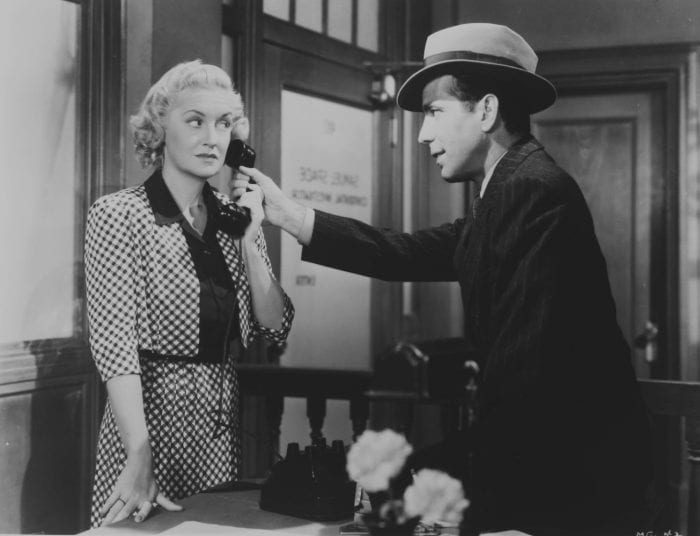
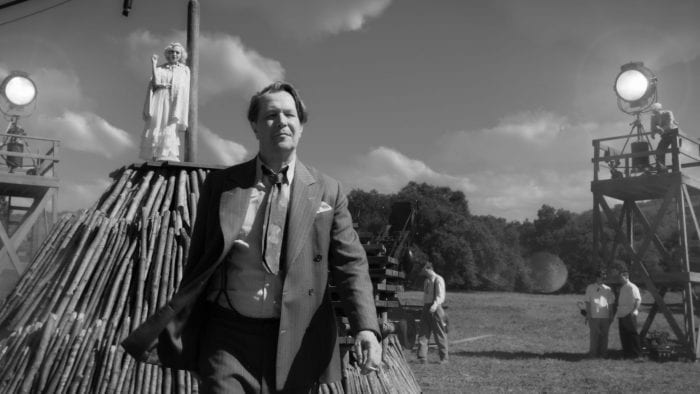



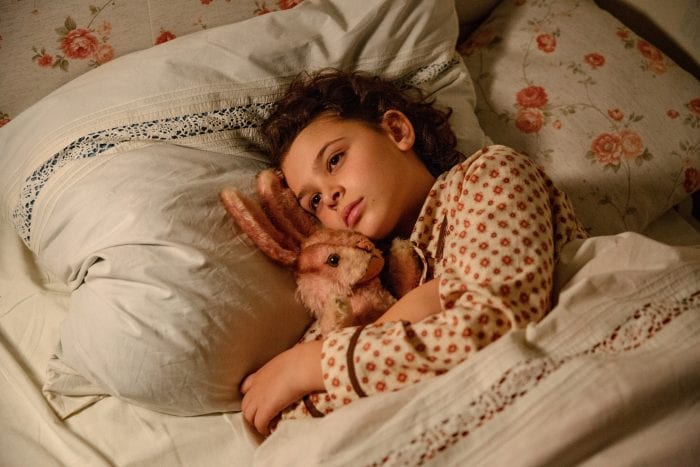

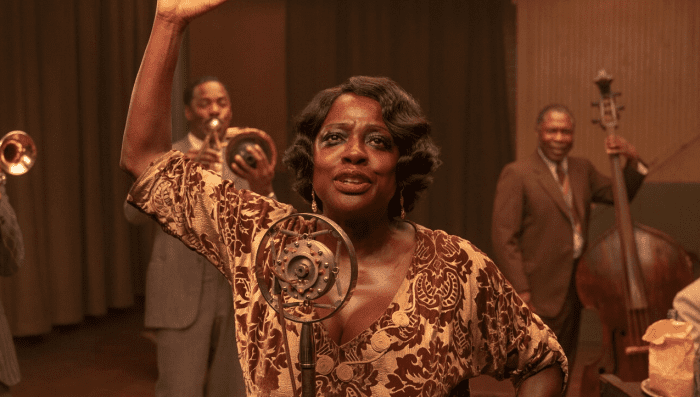
 The action shifts to the studio where the musicians await the arrival of Ma Rainey. The artists smoke, drink, and banter, and philosophize. But what seems like random chatter is a reflection of social injustice then and now. The men offer stories and anecdotes, with this slice of life elevated by Wilson’s honest and poetic words and exceptional performances.
The action shifts to the studio where the musicians await the arrival of Ma Rainey. The artists smoke, drink, and banter, and philosophize. But what seems like random chatter is a reflection of social injustice then and now. The men offer stories and anecdotes, with this slice of life elevated by Wilson’s honest and poetic words and exceptional performances.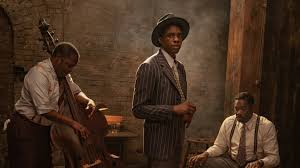 The film also marked the final performance of Chadwick Boseman, who sadly died of colon cancer at the age of forty-three. His performance is nothing less than brilliant, bouncing between Levee’s energetic and monomaniacal determination to create his own band and his inner demons. These lead to clashes with both Ma and his fellow musicians. His relating of his mother’s rape and his father’s revenge is one of the most chilling and raw moments in this or any film.
The film also marked the final performance of Chadwick Boseman, who sadly died of colon cancer at the age of forty-three. His performance is nothing less than brilliant, bouncing between Levee’s energetic and monomaniacal determination to create his own band and his inner demons. These lead to clashes with both Ma and his fellow musicians. His relating of his mother’s rape and his father’s revenge is one of the most chilling and raw moments in this or any film.

